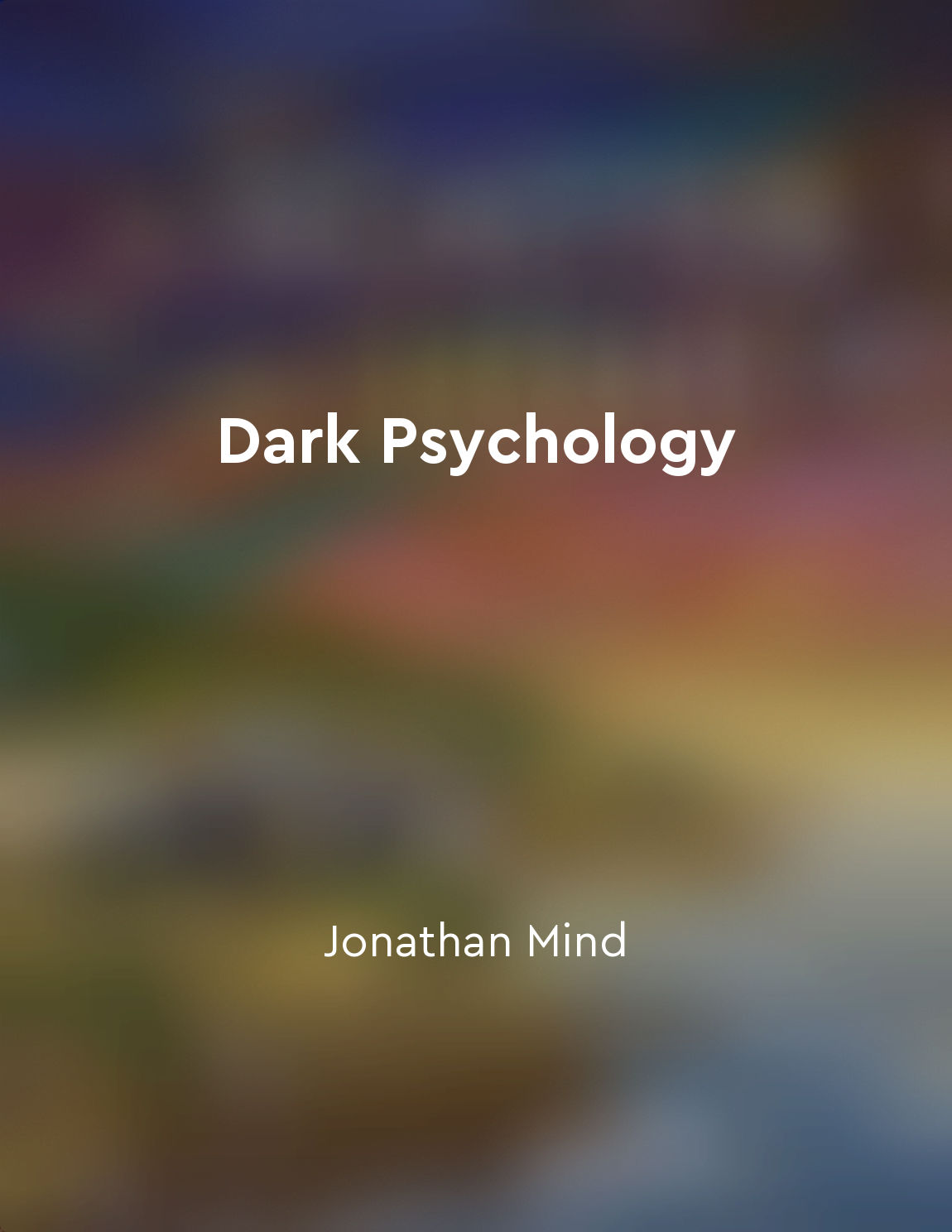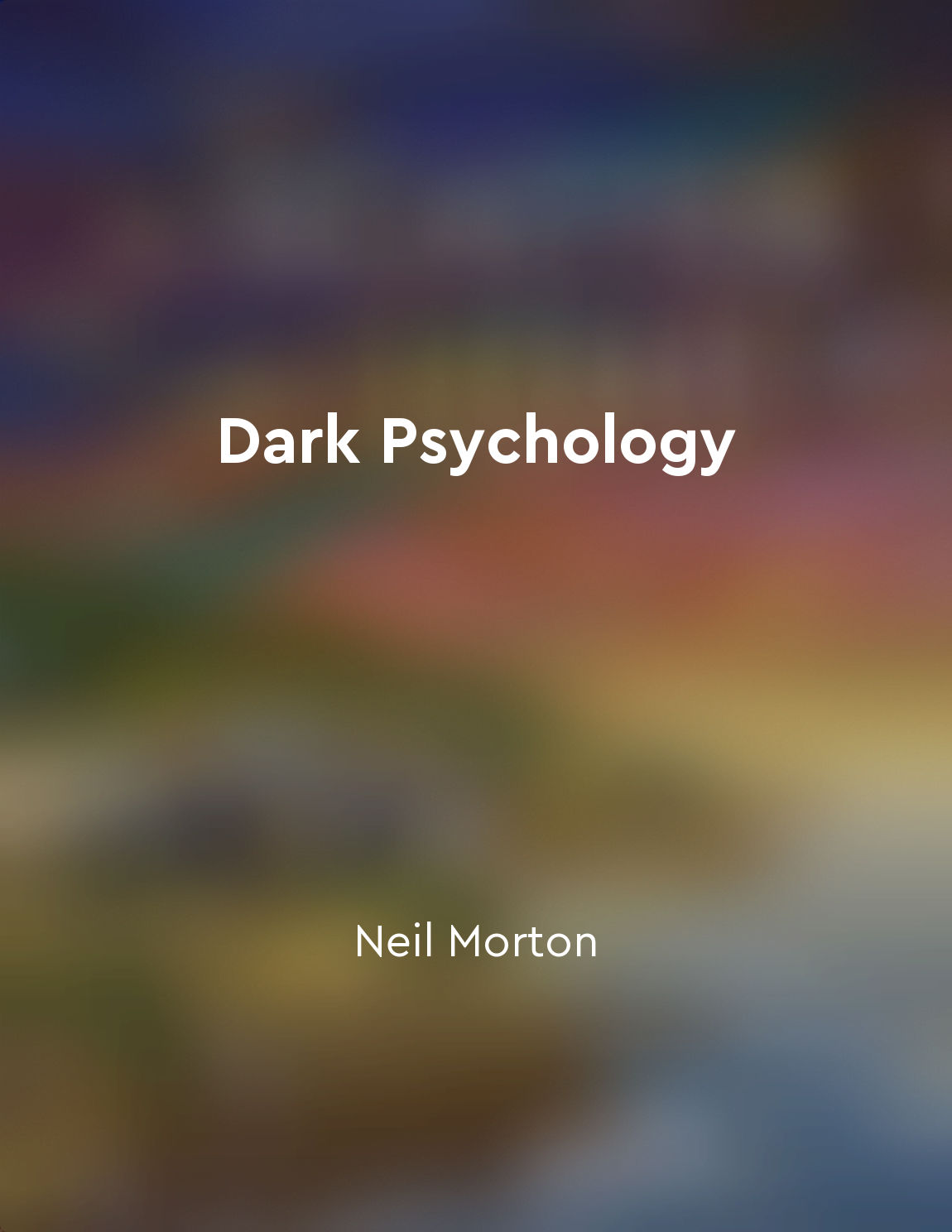Not all experts agree on its accuracy from "summary" of The Psychopath Test by Jon Ronson
Some experts believe that the Hare Psychopathy Checklist, the main tool used to diagnose psychopathy, is a reliable and accurate measure. They argue that it has been extensively researched and validated, and that its criteria are based on thorough analysis of psychopathic traits. These experts have used the checklist in clinical settings and have found it to be a useful tool in identifying individuals with psychopathic tendencies. They believe that the checklist provides valuable insights into the mindset and behavior of psychopaths, allowing for better understanding and management of this personality disorder. However, not all experts agree on the accuracy of the Hare Psychopathy Checklist. Some critics argue that the checklist may be too subjective and prone to bias, as it relies heavily on the interpretation of the examiner. They point out that the criteria for diagnosing psychopathy can be ambiguous and open to different interpretations, leading to inconsistent results across different examiners. Additionally, some experts question the checklist's reliability in distinguishing between individuals who exhibit psychopathic traits and those who are simply antisocial or have other mental health issues. Critics also raise concerns about the checklist's potential for stigmatizing individuals who are diagnosed as psychopaths. They argue that labeling someone as a psychopath based on a checklist score may have serious consequences for their personal and professional life, and that the checklist may not take into account the complexity and variability of human behavior. Furthermore, some experts question the checklist's validity in different cultural contexts, as its criteria may not be applicable or relevant to all populations. Despite these criticisms, the Hare Psychopathy Checklist continues to be widely used in clinical and forensic settings to assess psychopathy. Its proponents argue that while the checklist may not be perfect, it is still a valuable tool for identifying individuals with psychopathic traits and informing treatment and intervention strategies. It is important for researchers and clinicians to critically evaluate the checklist's strengths and limitations, and to consider alternative approaches to diagnosing and understanding psychopathy.Similar Posts
They lack empathy but excel in manipulation
The concept of lacking empathy while excelling in manipulation is a defining characteristic of psychopaths. These individuals p...

The dark triad traits can be harmful in relationships
The dark triad traits, consisting of narcissism, psychopathy, and Machiavellianism, can have detrimental effects on relationshi...

Understanding the concept of power dynamics in manipulation
Power dynamics play a crucial role in the art of manipulation. Understanding how power is wielded and utilized is key to effect...
They have shallow emotions and lack remorse
Psychopaths exhibit a distinct lack of emotional depth and empathy. Their emotional responses are superficial, often mimicked r...

Josh believes he is a psychopath
Josh is convinced he is a psychopath. He has been reading up about psychopathy and has come to the conclusion that he fits the ...
Psychopaths are highly skilled at reading people
Psychopaths have an uncanny ability to read people like a book. They possess a keen sense of observation, quickly picking up on...
Psychopaths may lack a moral compass
Psychopaths are often characterized by their apparent lack of a moral compass. This means that they may not possess the same in...

Hare's test is controversial
The concept of the Hare Psychopathy Checklist is a controversial one. The checklist was devised by Canadian psychologist Robert...
